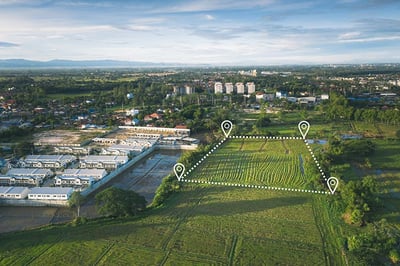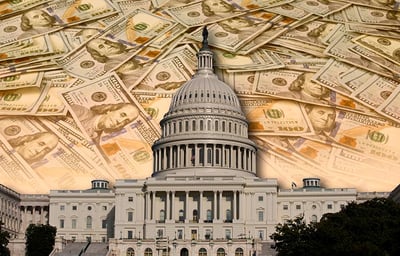Page 8 71 - 80 of 144
How to Defer Capital Gains After Exiting an Opportunity Zone

When you choose to invest in a Qualified Opportunity Zone (QOZ), there are several potential motivations. First, you may be seeking to defer the payment of taxes on capital gains earned on another investment. If that is one of the reasons, keep in mind that you must invest the eligible profit into a Qualified Opportunity Fund (QOF) within 180 days of the date that the gain would be recognized for federal income tax purposes.
Can Opportunity Zones Be Used for Equipment?

The Tax Cuts and Jobs Act of 2017 brought about many different kinds of tax reform, particularly for corporations and private investors.
Can You Invest in Land in Opportunity Zones?

Investments in Opportunity Zones (often referred to as QOZ investments or Qualified Opportunity Funds) may offer potential for taxpayers to defer paying taxes on capital gains they have earned, while also seeking to earn more by reinvesting those gains. As a potential additional incentive to consider QOF investments, the program is intended to enhance economic development in lower-income areas.
Can Additional Census Tracts Be Nominated as Opportunity Zones?

No one will likely soon forget the many painful financial lessons learned during the Great Recession, especially real estate investors who saw their property values plummet by more than half when the U.S. housing bubble burst in 2008.
Can a Qualified Opportunity Fund Invest in a REIT?

Qualified Opportunity Funds (QOFs) are the vehicles that investors can use to participate in the Opportunity Zone program, which was created by the 2017 Tax Cuts and Jobs Act (TCJA). Opportunity Zones are federally designated areas in need of economic growth and investment. In exchange for directing investments in the targeted regions, taxpayers can defer and reduce their taxes on invested funds under certain circumstances. Here is how the program works:
Do Opportunity Zones Offer Annual Returns?

There are more than 8,760 Opportunity Zones located in all 50 States, the District of Columbia, and five United States territories, many of which have experienced a lack of investment for decades. Qualified Opportunity Zones (QOZ) can provide investors with attractive tax advantages and there’s an ability for OZs to offer annual returns; however, there is no assurance of investment returns, profits, or property appreciation in an Opportunity Zone investment.
Can Local Governments Modify Opportunity Zones?

The Opportunity Zone program was passed in 2017, as part of the Tax Cuts and Jobs Act. On the federal level, the program has allowed the investment of capital gains from the sale of assets into Qualified Opportunity Funds, or QOFs. These funds, in turn, push the monies toward specific, lower-income areas throughout the United States.
Can You Transfer Your Opportunity Zone Into a Trust?

What is an Opportunity Zone Investment? Qualified Opportunity Zone investments and Qualified Opportunity Funds were created by the Tax Cuts and Jobs act in 2017. The legislation created an incentive for investors to reinvest capital gains into designated areas known as Qualified Opportunity Zones (QOZs). By supporting these economically disadvantaged localities, the investors benefit from the chance to defer and reduce the obligation to pay taxes on the capital gain.
Delaware Statutory Trusts (DSTs) and Opportunity Zones

What Are Capital Gains Taxes? Taxpayers pay taxes on their capital gains, which is the difference between what an investor pays to acquire an asset (often referred to as the basis) and the amount received when the investor sells the asset. An asset is anything of value that you can exchange for cash, including stocks, gold, and real estate, which are tangible assets, and intangible assets like patents and intellectual property. If the investor owns the asset for less than one year, this is considered short-term, and the gain is taxable at the same rate as ordinary income. If the investor has owned (held) the asset for one year or longer, the ownership is long-term, and the tax rate is lower.
Can You Get Opportunity Zones Amended?

Qualified Opportunity Zones (QOZs) were established in the Tax Cuts and Jobs Act of 2017. The actual zones were determined in 2018. Opportunity zones cannot be amended at this time. The tracts were developed to give potential tax incentives to new investors in low-income and distressed areas and promote long-term investments and economic growth.
Page 8 71 - 80 of 144


